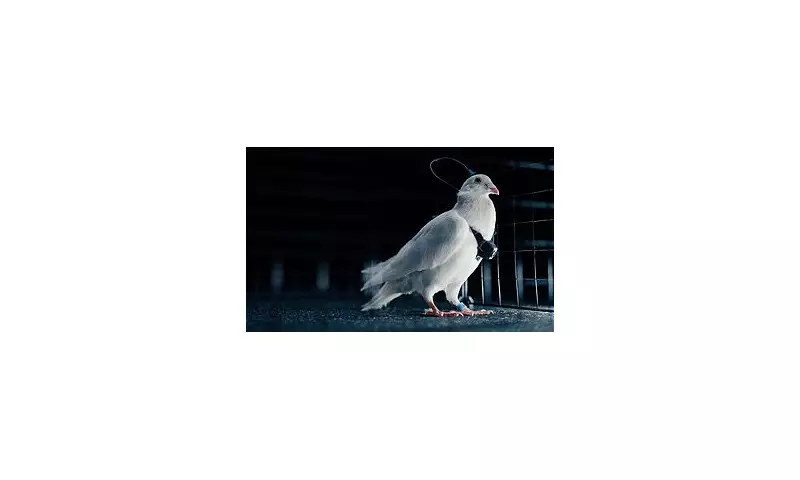
In a development straight from science fiction, Russia is pioneering remote-controlled spy pigeons fitted with sophisticated brain implants that allow technicians to steer the birds across the sky at will.
The PJN-1 Bird-Biodrone Programme
A state-linked Moscow neurotechnology firm called Neiry is conducting field tests of what it calls 'bird-biodrones' known as PJN-1. These are ordinary pigeons that undergo surgical procedures to implant neural chips, enabling operators to direct their flight routes in real time.
The technology works by stimulating specific regions of the bird's brain, creating the illusion that the pigeon itself wants to fly in a particular direction. According to sources at Neiry, which has deep ties to the Kremlin's hi-tech innovation machine, the bird then 'believes it wants to fly' in the instructed direction.
The surgical procedure involves inserting electrodes into the brain with millimetre precision. The pigeons wear tiny solar-powered backpacks containing onboard electronics, GPS tracking, and the receiver that transmits signals into the neural implant.
Military and Surveillance Applications
Perhaps most chillingly, Neiry insists that 'no training is required' for this technology, declaring that any animal becomes 'remotely controllable after the operation'. The company claims pigeons equipped with this technology can cover 310 miles in a single day, or more than 1,850 miles over a week.
Alexander Panov, company founder, revealed their expansion plans: 'Right now, the solution works on pigeons, but any bird can be used as the carrier. For transporting heavier payloads we plan to use ravens, for coastal monitoring — seagulls, and for large marine territories — albatrosses.'
The flock-steering technology, which the company says can be used for 'monitoring and guarding sensitive facilities', appears destined for military or intelligence applications. Given that pigeons are already ubiquitous in Russian urban life, their ability to blend into civilian environments makes them ideal for discreet surveillance operations.
The fitted spy cameras could potentially be deployed in conflict zones such as Ukraine, though the company officially states the main purpose is environmental monitoring, industrial surveillance, search-and-rescue operations, and providing additional security layers.
Controversy and Criticisms
While Neiry claims it is 'striving for a 100 per cent survival rate', the company has not disclosed how many birds have died during or after the invasive surgical procedure. The firm has previously faced criticism for tampering with cow brains in attempts to boost milk yields.
The company's funding sources raise additional concerns about its connections to the Russian state. Neiry has received funding from National Technology Initiative programmes and investment structures connected to RDIF, the Kremlin's sovereign wealth arm headed by close Putin associate Kirill Dmitriev, who currently serves as a negotiator with the US on peace moves in Ukraine.
Neiry is also a resident of Skolkovo, the government-sponsored tech cluster often described as Moscow's Silicon Valley. This bird spy programme resembles previous Russian efforts involving combat dolphins, where mammals were trained to patrol seas, destroy underwater saboteurs, plant mines, and conduct reconnaissance missions.
The company describes the visible differences of their biodrones: 'The pigeon-biodrone PJN-1 differs from an ordinary bird only by the neuro-interface wire protruding from its head and the small backpack containing electronics.' They emphasise that unlike trained animals, their biodrones require no training whatsoever, with any animal becoming remotely controllable after surgery through neuro-stimulation of specific brain areas.





